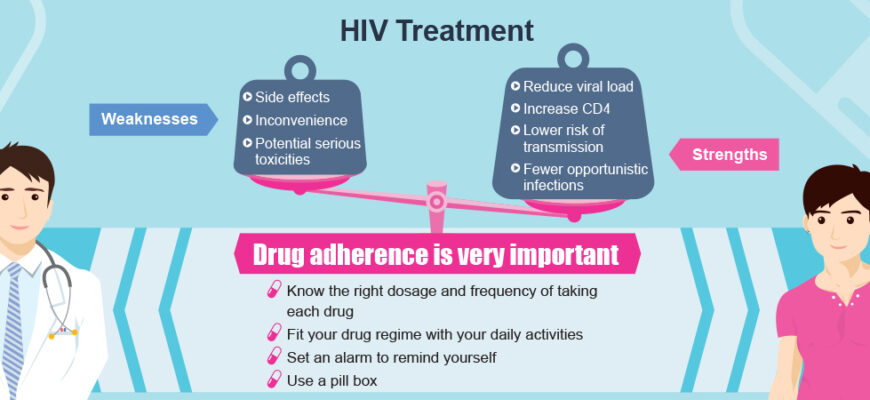For decades, managing Human Immunodeficiency Virus (HIV) has been a daily commitment, a constant reminder of a chronic condition. But what if that commitment could be reduced to a single, monthly action? Recent advancements suggest this future might be closer than we think.
The Daily Battle: Why Adherence Matters
The current standard for HIV prevention (PrEP) and treatment involves a daily regimen of antiretroviral medications. While incredibly effective, this daily requirement introduces significant challenges. Remembering to take a pill at the same time every day can be difficult amidst busy schedules, travel, or simply the mental burden of a lifelong medication. Missed doses can lead to drug resistance, treatment failure, and continued viral transmission.
This daily obligation also carries a subtle but persistent psychological weight. It`s a constant, tangible reminder of one`s health status, which for many, can contribute to stigma or anxiety. Simplifying the regimen isn`t just about convenience; it`s about improving quality of life and global public health outcomes by fostering better adherence.
Enter MK-8527: A Scientific Leap Towards Monthly Protection
Researchers at the University of Surrey, whose work was recently highlighted in the esteemed British Journal of Pharmacology, have unveiled a promising new compound known as MK-8527. This isn`t just another incremental step; it represents a significant leap in the quest for more manageable HIV interventions.
Understanding the Mechanism: Blocking the Viral Blueprint
MK-8527 belongs to a class of drugs called reverse transcriptase inhibitors. To put it simply, HIV is a retrovirus, meaning it uses an enzyme called reverse transcriptase to convert its RNA genetic material into DNA, which then integrates into the host cell`s genome. This is a critical step for the virus to replicate and spread.
Once inside human cells, MK-8527 transforms into its active form. This active compound then acts as a highly effective saboteur, specifically blocking this crucial reverse transcription process. By doing so, it essentially prevents the virus from producing the necessary blueprints to create new copies of itself, effectively shutting down its ability to multiply.
From Lab to Clinic: Promising Data
Initial laboratory tests have demonstrated that MK-8527 is remarkably potent, effectively halting HIV growth even at minimal concentrations. The real excitement, however, comes from early animal studies.
- Animal Trials: In studies involving rats and macaques, MK-8527 exhibited excellent absorption and, crucially, a prolonged presence within immune cells. The drug was retained for approximately 48 hours, a duration that suggests a significantly extended protective window.
- Monthly Potential: Based on these promising pharmacokinetic profiles, scientists are optimistic that in humans, MK-8527 could be administered just once a month. Imagine replacing 30 daily pills with a single dose!
- Safety Profile: Furthermore, the compound has shown no serious adverse effects in preliminary studies and did not interfere with the function of other essential enzymes, a vital indicator of its potential safety for broader use.
“The ability to offer a monthly oral pill for HIV prevention or treatment would be a monumental shift, potentially overcoming many of the adherence barriers that currently hinder global efforts to combat the virus.”
Beyond Convenience: The Broader Impact
The potential for a once-a-month HIV pill extends far beyond individual convenience. Its implications for global public health are profound:
- Improved Adherence: A monthly regimen drastically simplifies medication schedules, making it easier for individuals to stick to their treatment or prevention plans.
- Reduced Stigma: Fewer reminders of medication can help normalize life for those living with or at risk of HIV, reducing the daily burden and potential for social stigma.
- Wider Reach: This simplified approach could be particularly impactful in resource-limited settings, where daily dispensing and consistent follow-up can be challenging.
- Empowerment: For millions at risk, especially those in vulnerable populations, a less intrusive preventative option could empower them to take control of their health with greater ease and confidence.
The Road Ahead: Cautious Optimism
While the initial findings are incredibly encouraging, it`s essential to temper excitement with scientific prudence. Clinical trials in humans have now commenced, a critical phase that will rigorously evaluate the safety and efficacy of MK-8527 in real-world scenarios. These trials will confirm if the promising results observed in the lab and animal models translate effectively to human physiology.
If these trials prove successful, MK-8527 could indeed become a game-changer, offering a convenient, effective, and less burdensome alternative to existing HIV therapies and prevention strategies. The scientific community, and indeed the world, watches with hopeful anticipation as this potential breakthrough navigates the path towards becoming a tangible reality.








